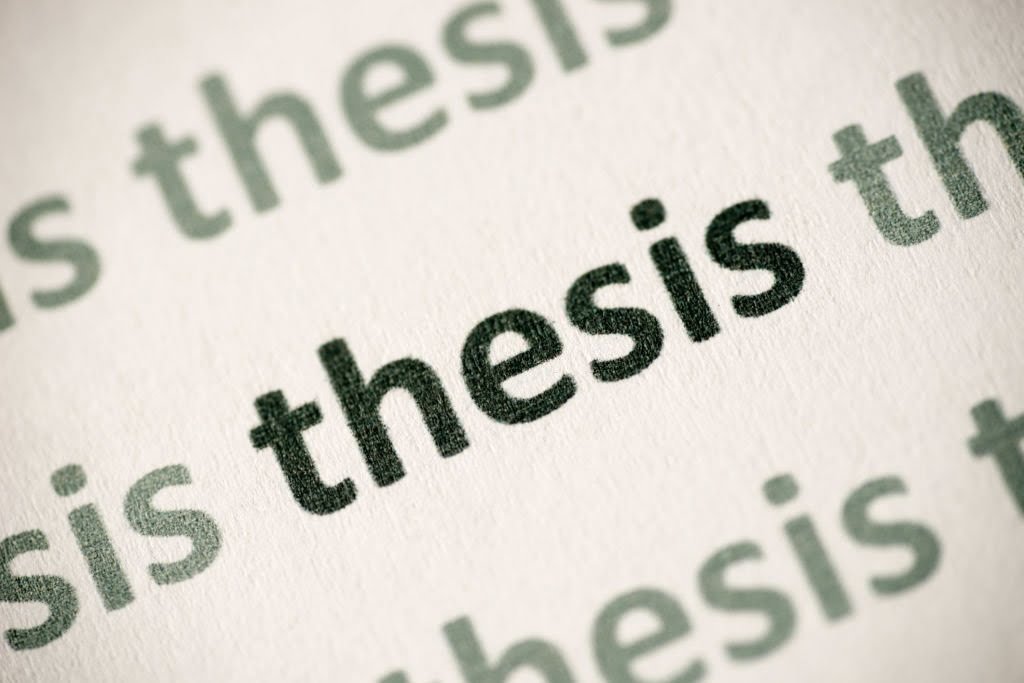Learning how to write a thesis for rhetorical analysis can be pretty challenging. After all, you have to view the text from a different perspective than usual for this type of essay. A rhetorical analysis is not focused on what the author says in the text but revolves more around the method. You are required to shed light on the goal and techniques used by the author in the text in your essay.
Of course, the structure of the analysis remains the same. You have to start with the thesis that lets the readers know what to expect in your essay, followed by the body containing the analysis and, finally, the conclusion. But the question is how to write a thesis for a rhetorical analysis?
To write the thesis for a rhetorical analysis, you have to view the text critically. Determine whether the author has substantiated his views with enough facts. Analyze his strategies before forming your judgment. Figure out how you will support your thesis statement and draft it accordingly. And then have someone else review the thesis for you.
Yes, this can be complicated. A rhetorical analysis is tricky as it is. But if you manage to draft an intriguing thesis, half of your work will be done. Most of your readers will judge your analysis based on this thesis. Needless to say, you have to be really cautious during this stage. A systematic approach can be helpful. Let us guide you on how things should be done.
Get A Better Understanding Of how to write a Thesis For a Rhetorical Analysis
Before we talk about the thesis, it’s vital that you understand what rhetorical analysis actually is. During your analysis, you have to look at the text to figure out what the author wanted to say and how he wanted to persuade the audience with his views.
Focus on the appeal. How did the author aim to convince the audience of what he wanted to say? Typically, there are three variants of appeals used by authors.
word thesis printed on white paper macro
- The logical appeal or logo wherein reasoned arguments are used for persuading the audience
- The ethic appeal during which the author establishes himself as the authority on the subject
- The pathetic appeal that aims to evoke the readers’ emotions
Keep in mind that an author might use a combination of these variants to convince the audience too.
Interestingly, it’s not necessary that you will be required to analyze a text for your essay. It could be any piece of communication like a speech or even an advertisement.
But irrespective of the nature of the text you are analyzing, the basis of rhetorical analysis remains the same. You have to focus on the author and his target audience, identifying his purpose behind the text.
A piece of rhetoric is based on an argument. Sometimes, the argument is well defined, while in other cases, it has to be inferred by the readers. Naturally, the argument has to be backed by claims and factual evidence.

Writing The Thesis For Rhetorical Analysis: The Steps To Follow
By now, you know pretty well everything you need to explain in analysis. While writing the thesis, you have to ensure that your readers get a clear impression of what you want to convey in your analysis.
You have to introduce the readers to the text you will be analyzing provide them relevant background information before moving on to your main thesis statement.
Read The Article Carefully
The first part of writing the thesis for the analysis is ensuring that you comprehend the task perfectly. Therefore, read the text multiple times and take notes of the main points you come across.
Latin student, 30-year-old woman studying online, with notebook, cellphone and books. Woman studying at home, bedroom, living room and backyard.

Think About The Text Critically
Analyze the text critically and come up with relevant questions. Do you think the author has done enough research? Does he have the evidence to back his claims?
You should also gauge whether the author has used assumptions in the task. Are there any unanswered questions in the text? Do you notice any bias? These questions will help you understand the piece better and make it clear what side you should be on in your thesis statement.
Form A Judgment
Now that you have understood what the writer wanted to say and have also analyzed the piece critically, you can make a judgment about it with ease. Does the article convince you of what the author wanted to say? Do you think the writer has done a good job presenting his side of the story? This will dictate the tone of your thesis statement.
It’s Time To Draft The Statement
At this point, you have enough material for drafting your thesis. Remember, the thesis statement should be complex yet understandable for the readers. You don’t have to merely present your observation in this statement but present your argument.
The reader should get a clear idea of which side you are on with your thesis statement. The body of your essay will then convey the reasons behind your judgment. Therefore, while writing the thesis for a rhetorical analysis, give the readers a peek into what your essay will contain.
Create An Outline
Keep in mind that you will have to support your thesis statement with factual evidence. Therefore, ensure you have enough material to back your argument. Draft an outline to determine how you will present the case in favor of your argument.
And if you feel your argument does not have enough weight or you don’t have enough to support your claim, don’t hesitate to tweak your thesis statement accordingly.

Review Your Work
Once your thesis is ready, have someone else review it. You can turn to your friends or even teachers for this purpose. You have to figure out whether they gain clarity about the main points you want to present in your analysis via your thesis. If not, you have to revise the thesis as needed.
Give It Enough Time
The thesis is one of the most crucial components of your essay. It’s the thesis that draws your readers in and compels them to read your essay. Do not take it lightly and dedicate enough time to it.



